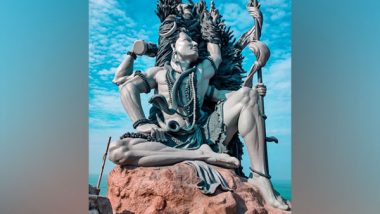New Delhi [India], July 21 (ANI): As the monsoon blankets the Indian subcontinent in a cool embrace, millions across the country prepare for the month of Sawan, a time revered by Hindus for its spiritual significance and devotion to Lord Shiva. This sacred month, falling typically between July and August marks a period of worship, fasting, and pilgrimage, dedicated to the deity of destruction and transformation. Sawan holds a special place in Hindu mythology as the month when Lord Shiva is believed to have consumed the poison that emerged from the churning of the ocean (Samudra Manthan), saving the universe from its toxic effects.
Devotees undertake fasting and offer prayers to seek the blessings of Lord Shiva during this period. The cooling rains of Sawan are symbolic of Shiva's compassion and benevolence. During Sawan, devotees typically observe fasts on Mondays, known as Shravan Somvar, which are considered auspicious.
Many choose to abstain from consuming grains and eat only fruits, milk, and specific foods permissible during fasting. The chanting of Shiva mantras, singing bhajans (devotional songs), and performing Rudrabhishek (a ceremonial bathing of Shiva Lingam with holy substances) are common practices observed with fervour across households and temples. For pilgrims seeking to deepen their connection with Lord Shiva during Sawan, several revered temples stand out as must-visit destinations: 1.
Kashi Vishwanath Temple, Varanasi: Situated on the banks of the Ganges, t.


















